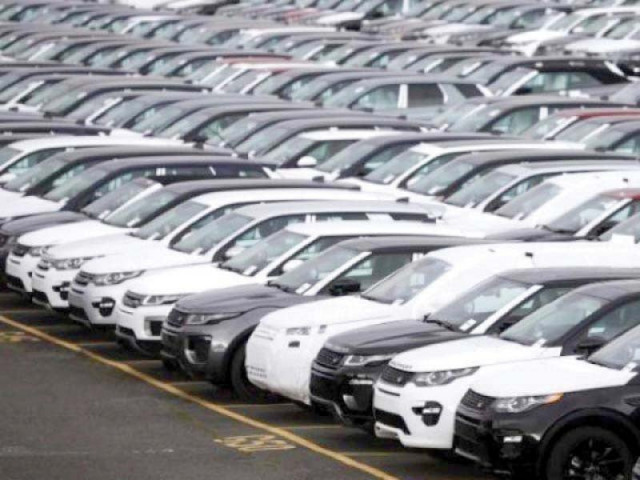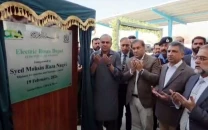Tax rebate on hybrid cars to stay
Top court upholds PHC decision, rejects customs’ appeals

The Supreme Court on Wednesday rejected the appeals of customs against the tax exemption on hybrid electric vehicles, upholding the decision of the Peshawar High Court.
A three-judge bench of the top court, headed by Chief Justice of Pakistan Justice Umar Ata Bandial, heard the appeals.
The CJP noted that the issue before the court was a matter of tax exemption and not of import of vehicles.
“If tax exemptions on imported vehicles were prohibited, you [customs] should have issued a show-cause notice,” he added.
The lawyer for the customs contended that the government had not given a 50% tax exemption on vehicles of over 1800 cc.
“The government has given tax exemption on new imported vehicles. However, it did not exempt the import of used vehicles from tax.”
To this, Justice Muhammad Ali Mazhar, who was also on the bench, noted that the government notification had not made it clear whether or not there would be tax exemption on used vehicles or new ones.
The CJP observed that the petition did not give any concrete reasons for suspending the order of the PHC. Later, the SC upheld the decision of the high court and dismissed the appeals of the customs officials.
It should be noted that Pakistanis living abroad had imported used vehicles in 2017 on a 50% tax exemption.
Read PAC opposes 17% sales tax on electric vehicles
The customs collector had challenged the import of electric vehicles in the PHC on tax exemption arguing that this was not allowed.
However, the high court had rejected the customs' applications against a 50% tax rebate on the import of hybrid vehicles.
Pakistan's electric vehicle market was expanding, nearly two years after the country launched its ambitious green policy, which envisioned a shift to 30% electric cars and trucks nationwide by 2030, and 90% by 2040.
The key to the shift are hefty tax exemptions for both electric vehicle imports and imports of parts and equipment to build the cars in Pakistan.
That has helped make the vehicles more affordable, industry figures show.
The general sales tax on locally manufactured electric cars - those with batteries holding less than 50-kilowatt hours (kWh) of power - has dropped from 17% to nearly zero.
At the same time, the customs duty on imported electric car parts - such as batteries, controllers and inverters - was brought down to 1%.
The duty on importing fully built electric cars also had fallen from 25% to 10% for a year.
Officials had said the tax relief was a big step towards implementing Pakistan’s National Electric Vehicle Policy, originally passed by the cabinet in November 2019.
It aims to put half a million electric motorcycles and rickshaws and 100,000 electric cars, vans and small trucks into the transportation system by 2025.
(With input from agencies)



















COMMENTS
Comments are moderated and generally will be posted if they are on-topic and not abusive.
For more information, please see our Comments FAQ